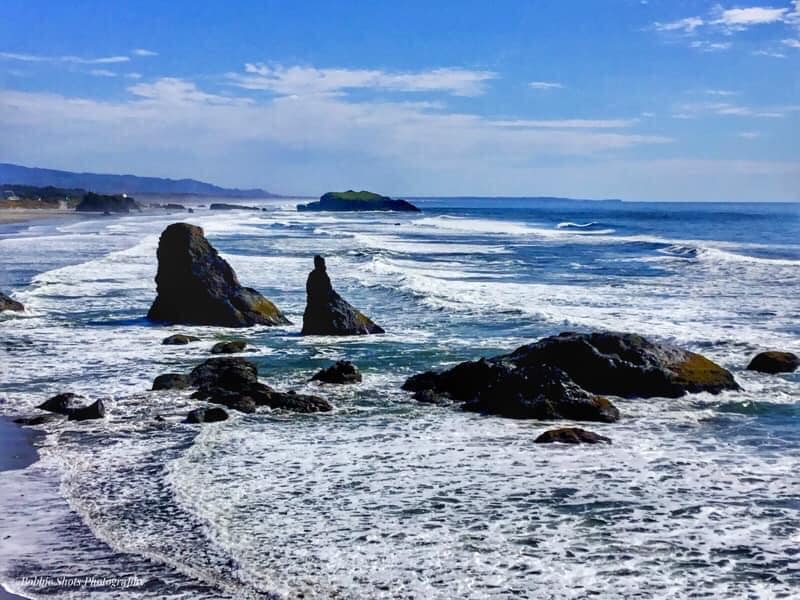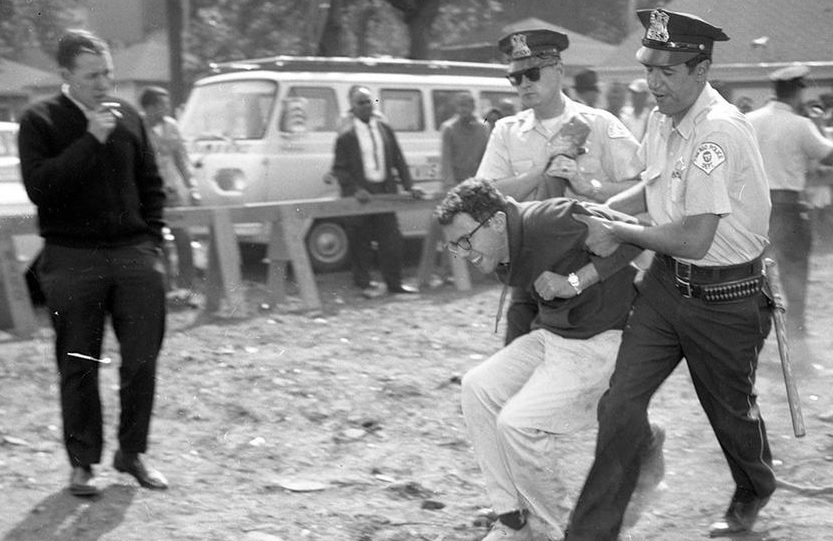The Daily Escape:

High tide, Bandon, OR – April 2022 photo by Bobbie Shots Photography
The Boston Globe is reporting that Musk is purchasing Twitter.
Musk is one of the great entrepreneurs of the 21st Century. He’s redefining space travel with SpaceX. He’s revolutionized internet communication with his Starlink low-earth orbit satellites, having more than 2,000 satellites in orbit. And he’s made Tesla the global leader in Electric Vehicles. And that has made him very rich.
Now he’s using some of his Tesla money along with a lot of Other People’s Money (Morgan Stanley, Barclays, and Bank of America) to buy Twitter and take it private. Bloomberg says Musk’s pledging $21 billion of his own money. The Banks are going to lend him $12.5 billion, secured by an additional $62.5 billion of his Tesla shares.
The rest of the purchase price will be funded by $13 billion in debt that Twitter will take on. After the deal closes, Twitter will have about $1 billion in interest payments due on the new debt annually. Twitter’s cash flow is projected to be about $1.43 billion this year and $1.85 billion in 2023. So debt payments will now be a huge chunk of Twitter’s future cash.
Since this is America, it’s unlikely that any government agency will stand in the way of the sale, but there are two things wrong with it.
First is how Musk became so fabulously wealthy. As Ranjan Roy points out at Margins, his rapid ascent to wealth is due to his unusual compensation package at Tesla. The package set what appeared to be unrealistic goals for sales and profits.
In early 2018, when the comp package was agreed, there was plenty of doubt whether Tesla could scale its manufacturing capacity. Musk had repeatedly said Tesla was on the verge of bankruptcy, yet over the next few years, Tesla both stabilized and grew. It went from producing around 90k cars/quarter in 2018, to nearly 300k in the last quarter of 2021. Revenue grew from $12 billion to $54 billion. Tesla produced nearly 1 million cars in 2021.
At the same time, Tesla’s stock price went to the moon, making Musk the world’s richest human. Not incidentally, much of that was helped by Musk’s tweeting. Ranjan Roy says:
“…since the Spring of 2013, it was clear Tesla’s business results and Musk’s tweeting could have a self-reinforcing impact, and that…cycle…became more clear in recent years. Shortly after Musk signed his giant package, the really high-volume tweeting began, and the rest is wealth accumulation history.”
Musk realizes that he’s dependent on his Twitter marketing strategy. He has 80+ million Twitter followers, and unfettered access to his account is vital to his current and future business interests. Why? His current Tesla 10-year pay package has nearly hit its maximum targets in just four years.
Musk needs to think about where he gets his next giant gain in wealth.
This is the challenge of today’s capitalism: Boards with little real vision give stupendous compensation packages that turn out to be easily achievable. And the SEC allows entrepreneurs with media savvy to pump up their own stock at little personal risk.
Yes, Musk and Tesla have both paid fines to the SEC for stock manipulation. In a September 2018 settlement, Musk and the SEC agreed that he would step down as Tesla Chair and pay a $20 million penalty. Tesla also had to pay a $20 million fine.
But these were just minor costs of doing business compared to the personal wealth he’s created.
The second problem is that Musk, (and maybe a few on Twitter’s board) think that individual users should decide who and what gets seen and heard online. Musk says he wants Twitter to be an open playing field for competitive speech.
That may be peachy in the abstract. But we all know that every unmoderated platform goes to shit because it only takes a few bad-faith users to make it miserable for everyone.
For now, Twitter has decided that Trump can’t post on its platform. It decides whether to delete a post about vaccines if it deems the post to be misinformation. Most people don’t have the time to learn what’s real and reliable, and history shows how susceptible most are to harmful misinformation campaigns. Expect this to change after Musk buys Twitter.
“In an unmoderated online forum, all speakers do not play by the same rules or have the same tools. University of Maryland professor David Kirsch has found that automated pro-Tesla Twitter accounts are responsible for 20% of the tweets about Tesla, and that the launching of these bots correlates with increases in the company’s stock price.”
Rupert Murdoch transformed media in order to exercise greater influence over society. Does America need Musk to become another Murdoch? There’s a good chance one of his first acts as the Tweeter-in-Chief will be to re-instate Trump’s account, something that will have very serious political consequences.
Wrongo is a capitalist, but we’ve always needed rules to reign in the worst of the market’s players. And rules require umpires. Without umpires, anticompetitive and illegal acts go unpunished. Worse, today people insist, in the name of freedom, on their right to shout down all dissenting voices.
In America, underregulated economic winners have funded think tanks. Some have bought politicians. Some, newspapers and cable news stations. Musk is buying Twitter. They’re trying to convince us that the umpire is the enemy.
Musk wants you to live in a Wild West of speech and power. Are you ready for that?





